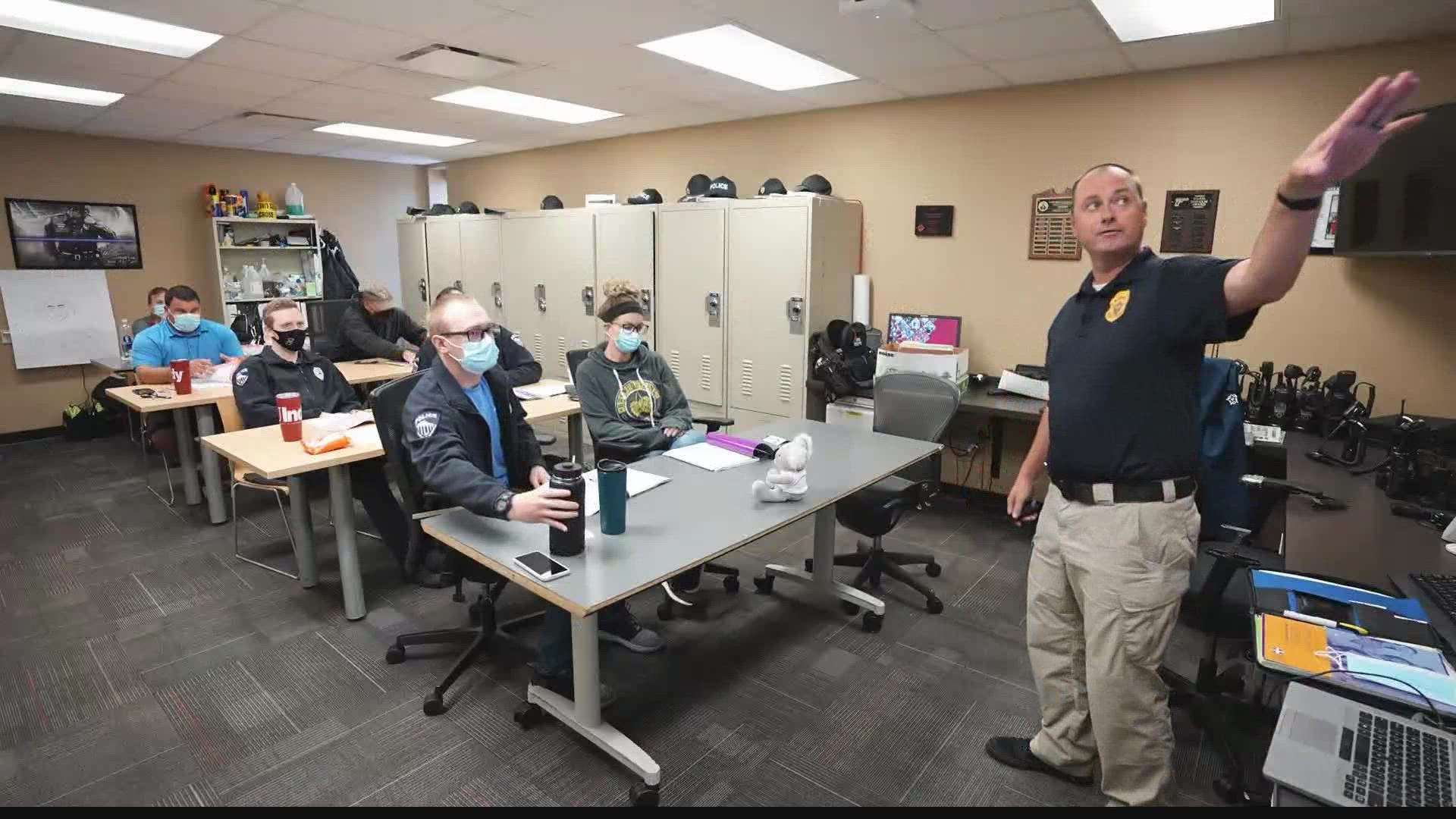INDIANAPOLIS — Police officers at the University of Indianapolis are getting new training to help people struggling with mental health issues.
The goal is to connect people in crisis with support and resources, instead of sending them to jail.
Campus police on patrol in and around UIndy say they've noticed a spike recently on their shifts, especially since the pandemic.
More students are struggling with stress and mental health issues and more people are experiencing homelessness nearby, using campus buildings for temporary shelter.
So the department reached out to IMPD for a class on first aid for mental health.
"We're really just hoping to give our officers some resources and alternatives to arrest," said UIndy Assistant Police Chief Hailey Padgett-Riley.
"Someone in a mental health crisis - they're not a criminal, right? And they're going thru so much stress that they really just need help," said IMPD Sgt. Lance Dardeen, who led the training sessions at the university.
Sgt. Dardeen supervises the mobile crisis assistance team for IMPD.
He's teaching the 13 member police department at the University of Indianapolis a five-step action plan to reach out and offer support.
It's the equivalent of giving CPR during a heart attack.
The acronym for the plan is ALGEE:
"The first thing we want to do is we want to Assess for risk of suicide or harm. Then we want to Listen non-judgmentally. We want to Give reassurance and information. We want to Encourage appropriate professional help and then we want to Encourage self-help and other support strategies," Dardeen explained. "We're focusing on signs and symptoms. How to recognize them and then how to take that information and get the individual in crisis to the most appropriate resources."
Officers are then able to connect people with counselors to treat substance abuse or depression.
They also now carry hygiene kits in their cars for the homeless and try to guide them toward safe shelter resources instead of arresting them for trespass.
"A lot of officers don't want to have to arrest people and they have a heart for people that need just a little extra help," Padgett-Riley said. "If we can help in any other way, using our discretion, then it's better to do that than arrest people and just send them down another path to struggling."
Now armed with this new training, officers know how to step in and lift up, when met with a mental health crisis on campus.
"The main thing is trying to keep the students safe," said UIndy patrol officer Noah Weeks. "Being able to identify people that maybe need some extra help and being able to give the assistance that they need is definitely helpful."
The mental health first aid training isn't just for police and public safety groups.
The courses are for anyone, just like a CPR class.

